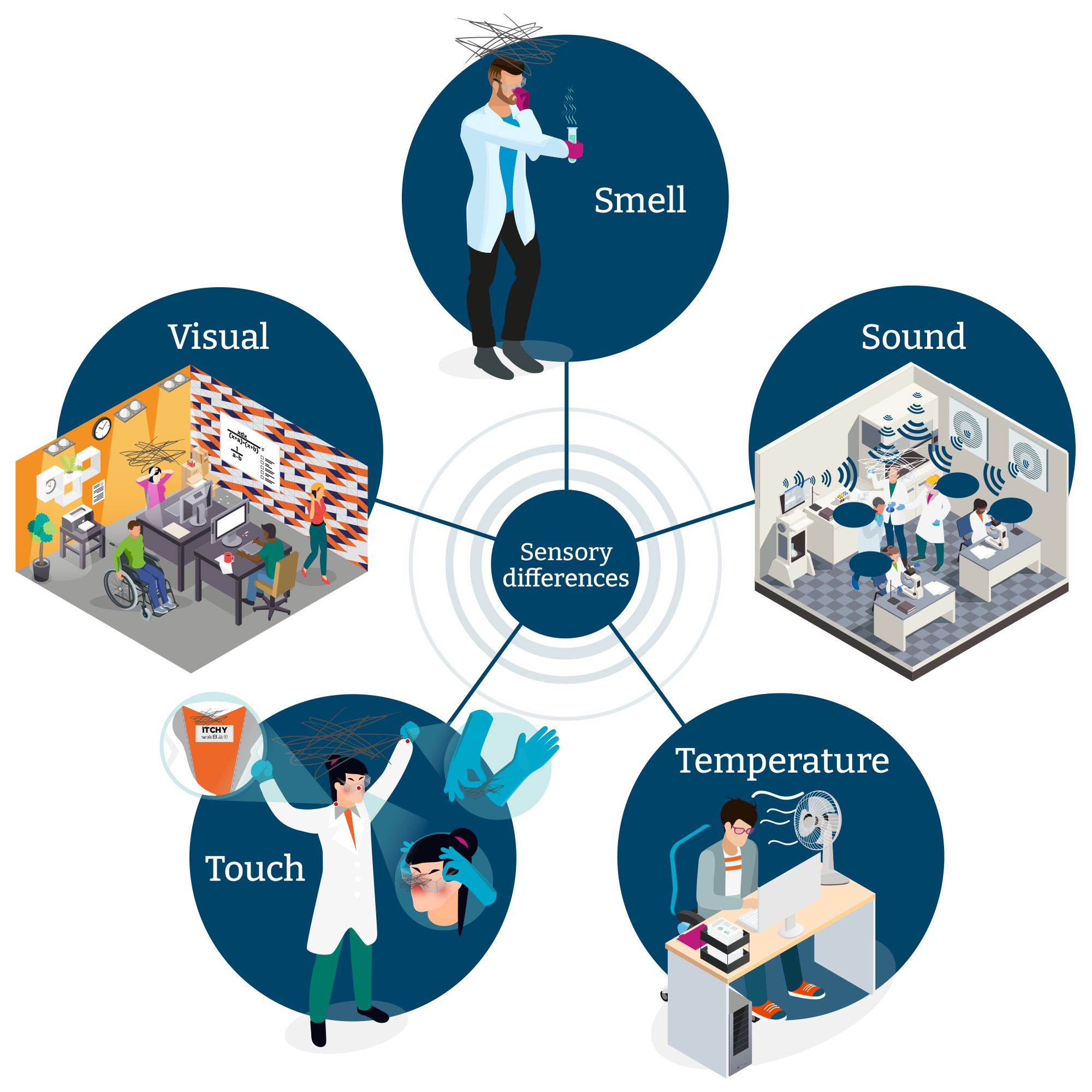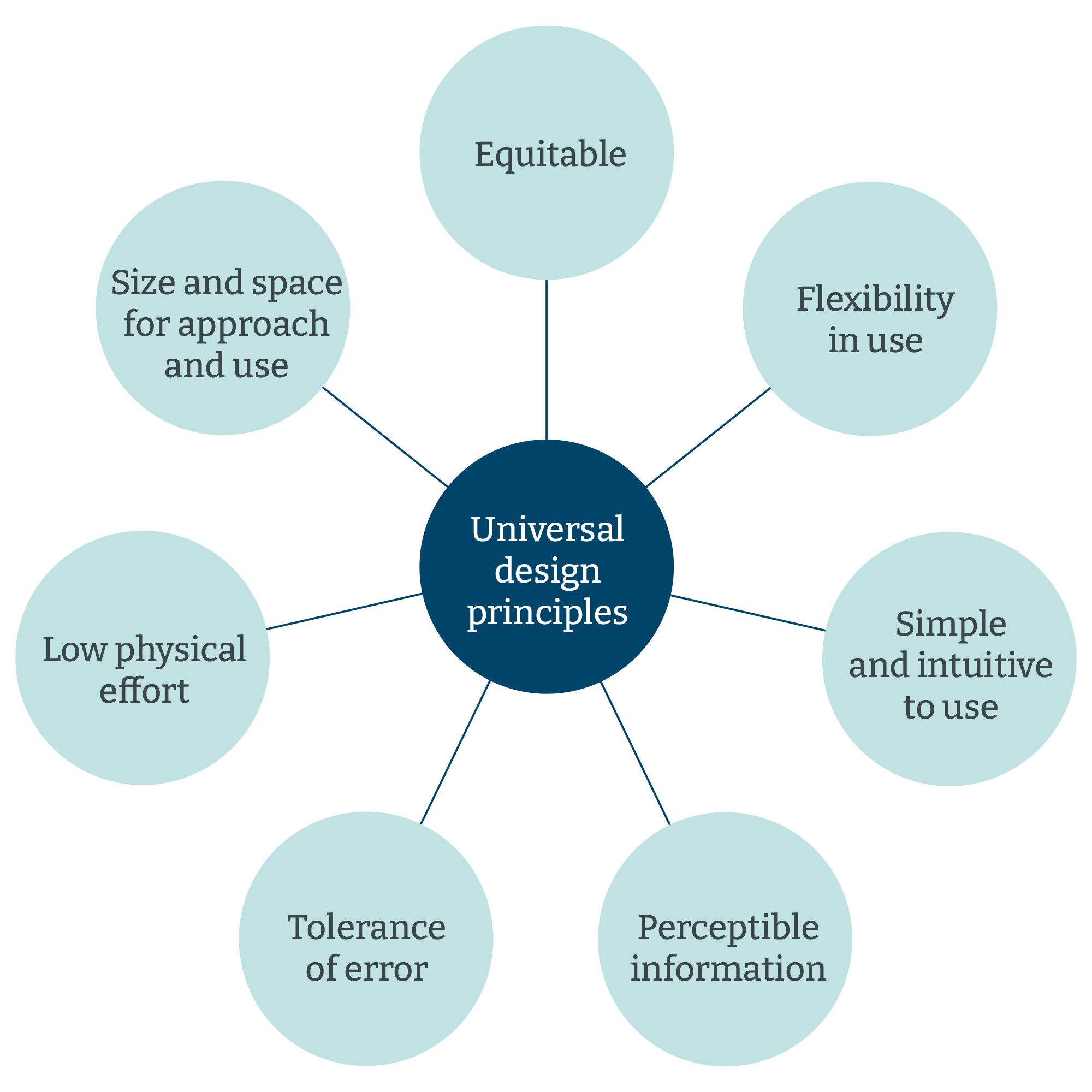Here you can find a range of resources, information and guidance focussing on supporting and including neurodivergent individuals, and creating more neuroinclusive environments for all in the chemical sciences community.
Find the sections in the table below which are most relevant to your role:
| Resource | Neurodivergent individuals | Colleagues | Line managers and supervisors | Wider employers and institutions |
|---|---|---|---|---|
| Inclusive recruitment | ✓ | ✓ | ||
| The sensory environment | ✓ | ✓ | ✓ | ✓ |
| The lab environment | ✓ | ✓ | ✓ | |
| Universal design | ✓ | ✓ | ✓ | |
| Assistive technology | ✓ | ✓ | ✓ | |
| Access to work | ✓ | ✓ | ✓ | |
| Disabled Students Allowance | ✓ | ✓ | ||
| Training and education on neurodiversity | ✓ | ✓ | ✓ | |
| Allyship | ✓ | ✓ | ✓ | ✓ |
| Accessibility guides | ✓ | ✓ | ✓ | ✓ |
| ŷ��AV support, networks and mentoring | ✓ | |||
| Other networks and communities | ✓ |
Assistive technology
There is a wide range of assistive technology available, which can help many neurodivergent individuals with different conditions. There is rapidly developing software and hardware, such as text-to-speech, speech-to-text, mind-mapping tools, spelling and grammar tools, coloured text overlays, screen readers, recording devices and noise-cancelling headphones.
Line managers should review these options with neurodivergent employees and support them in implementing potentially helpful options.
Financial support for adjustments (UK)
is a UK government scheme that offers financial support towards adjustments needed by disabled individuals in the workplace, including neurodivergent individuals. This can include equipment, software, support workers and travel costs.
is accessed through student finance and provides support to cover study-related costs incurred due to a disability, including neurodivergence. It includes specialist equipment, non-medical helpers, travel costs, and other disability-related study support.
Training and education resources
Greater awareness and insight into neurodiversity and neurodivergent conditions are key to building an inclusive and accessible workplace. Employers should educate their employees, to remove misconceptions about neurodivergence and increase understanding.
This training can help create a more inclusive environment for neurodivergent employees, helping reduce the need to mask. It also makes it easier for neurodivergent employees to share information about their neurodivergence with their manager, therefore, enabling access to support and adjustments.
Neurodiversity training and education in the workplace should embrace the ideology of ‘nothing about us without us’, meaning that the training should involve those with lived experience of neurodivergence themselves.
If you are an employer or institution, consider providing training for line managers to equip them with the knowledge and skills to support the wide range of individuals they are likely to manage, including neurodivergent individuals. This should include guidance on inclusive and accessible practices to embed as standard, as well as the implementation of individualised reasonable adjustments.
provides education on a wide range of neurodivergent conditions, explaining what the condition is, how it may impact the individual at work, and supportive ideas and adjustments.
Allyship
We all need to work together if we are to create a welcoming environment for all.
Tips for creating a welcoming and inclusive environment for your neurodivergent colleagues:
- Ask your colleagues how it is best to communicate with them, whether that be face-to-face, emails, phone calls, or other means
- Avoid making assumptions – an individual may share that they have a neurodivergent condition with you. It can be easy to assume they will have similar traits and needs to someone else you know with the same condition. Instead, try and adopt an individualised approach
- Educate yourself about neurodiversity – read neurodiversity-based resources, (some can be found on this webpage). Most importantly, reflect on the resources and use them to change your practices to become more inclusive
- Respect people’s privacy – someone may share information about their neurodivergence with you, but this doesn’t make it public knowledge Don’t share information without the individual’s permission
- Advocate for action from institutions – support your organization’s disability or neurodiversity staff networks in any projects they are working on to improve inclusion for neurodivergent individuals
- Speak up if you hear somebody speaking about neurodivergence or disability in a way that is discriminatory or harmful
- Ask your colleagues if there is anything you can do to help support them or make the environment more comfortable for them, for example, avoiding taking meetings in open office spaces and using a room instead
Accessibility guides
You can use the guides below to plan your meetings, help you write communication and design your website:
Other networks and committees
The following external networks and projects may be of interest to neurodivergent chemists:
- : a network for disabled scientists
- : building a community of neurodivergent individuals in STEM
- : bringing together disability staff networks from a range of organisations



